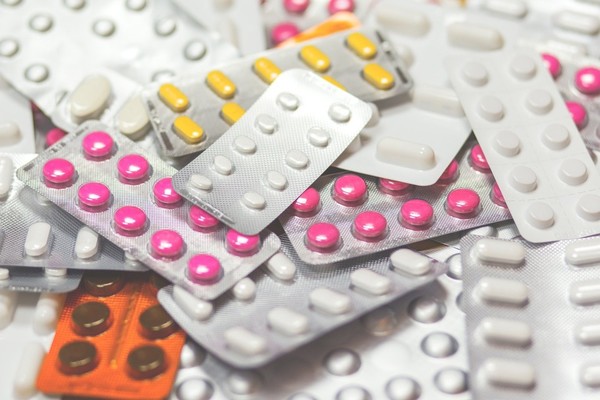As Covid-19 prolongs, experts emphasize the importance of oral therapeutics because the novel coronavirus is increasingly likely to become an endemic that occurs periodically rather than a one-off pandemic.

“We should begin to prepare to live with the coronavirus,” said Rep. Shin Hyun-young of the ruling Democratic Party, a doctor-turned-lawmaker, in her website on Sunday. “We need to accept Covid-19 like the flu.”
Rep. Shin suggested ways to accommodate the “Covid-19 endemic.”
"There should be a simple treatment option, such as an oral therapy," Shin wrote. "It is necessary to develop a simple oral treatment, such as a short-term tablet like Tamiflu, which patients can take immediately after diagnosis."
Shin stressed that was why she called for the Korea Disease Control and Prevention Agency (KDCA) Commissioner Jeong Eun-kyeong to pre-purchase MSD's molnupiravir, an oral treatment, using the extra budget.
Shin seemed to have in mind that the U.S. government signed a large-scale supply contract with MSD for the oral Covid-19 treatment in June. Industry experts said the pre-purchase was aimed to accelerate the development, considering MSD was conducting phase 3 clinical trials of molnupiravir. The U.S. government is known to have signed a $1.2 billion (1.3 trillion won) contract with MSD.
Korean companies are also developing oral Covid-19 treatments.
For instance, Daewoong Pharmaceutical is preparing to release the top-line phase 2b trial results of its oral Covid-19 treatment, Coviblock (ingredient: camostat mesylate).
The company has been developing its chronic pancreatitis treatment Foistar as a Covid-19 treatment, Coviblock, through drug repositioning. As part of its phase 2b clinical trials, Daewoong completed the administration of Coviblock in 300 mild Covid-19 patients in June and is delivering their results.
The company said it had confirmed the drug's potential as a treatment for Covid-19 as a result of the Phase 2a trial in 81 patients. It explained that patients aged 60 years or more with underlying diseases tended to remove the virus more rapidly in the Coviblock group and tended to show improvement in the national early warning score (NEWS), a symptom measure.
Based on the age and underlying disease information identified in advance when recruiting patients for the ongoing analysis, Daewoong is analyzing indicators, such as the time it takes to improve symptoms between the Coviblock and placebo group and the share of patients whose condition deteriorated enough to require additional treatment.
"We plan to announce the results of phase 2b top-line results within this month as scheduled," a Daewoong official said to Korea Biomedical Review.
Shinpoong Pharmaceutical, which is also developing its antimalarial drug Pyramax (ingredient name: pyronaridine-artesunate)' as a treatment for Covid-19, announced that it had submitted its investigational new drug (IND) application to conduct a phase 3 clinical trial for Pyramax to the Ministry of Food and Drug Safety on July 5.
The company said it plans to evaluate the efficacy and safety of Pyramax compared to placebo in 1,238 patients with mild or moderate Covid-19 symptoms. However, it has yet to receive approval from the regulator.
Shinpoong Pharmaceutical also announced the local phase 2 top-line results for Pyramax on the same day.
"There was no difference between the Pyramax (52 patients) and the control group (58 patients) in the percentage of patients who turned negative when undergoing a reverse transcription-polymerase chain reaction (RT-PCR) test, which was the primary endpoint of the study," a company official said. "Through the local phase 2 study, we have confirmed evidence for Pyramax's virus inhibitory effect and the possibility of improvement of overall clinical indicators."
Commenting on the indicators that showed the company has failed to reach statistical significance due to a small number of subjects in the phase 2 trial, the official said the company would focus its capabilities on confirming it as quickly as possible through a large-scale phase 3 trial.
Besides, BNC Korea owns the domestic sales rights and manufacturing rights for antroquinonol, an oral Covid-19 treatment candidate.
Golden Biotech, a Taiwanese company that developed antroquinonol, recently received emergency use approval for treating 100 mild to moderate Covid-19 patients from the Taiwan drug regulators on June 30.
The company also received approval to conduct a phase 2 clinical trial for the drug from the U.S. Food and Drug Administration in July last year and plans to apply for emergency use approval after obtaining the results.
"After confirming the results of phase 2 clinical trial for anthroquinonol in the third quarter, if it is positive, we plan to apply for emergency use approval to the FDA," Golden Biotech said.

